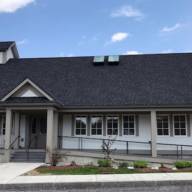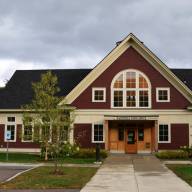Last week ushered in uncharacteristically hot days along with high energy, multigenerational rallies at the State House in support of affordable child care and climate action. I enjoyed a chance to meet with committed students from Crossett Brook Middle School and members of Vermont's Youth Lobby who organized the climate rally. As the countdown to the end of session in mid-May begins, here are some updates on the action:
Housing: The housing omnibus bill (“HOME Bill,” S.100) passed out of the House General and Housing Committee with enhanced funding for a range of important housing and affordability initiatives. Vermont Housing Improvement Program (VHIP) was expanded to support the rehabbing of rental units as well as the creation of new rental units of any kind, offering grants and forgivable loans to develop duplexes (up to $30K) or three or more units (up to $50K). Funding was added for a rental revolving loan program, a middle-income housing development program, and a first-time homebuyer program, all administered by Vermont Housing Finance Agency (VHFA). Funding was also added for a state homesharing coordinator and for two studies, one on mobile homes and one to explore the most cost-effective ways to ensure building safety as housing density investment proceeds. The bill includes significant land use provisions to enable denser housing development through zoning and Act 250 changes, which fall under the jurisdiction of the Environment and Energy Committee. In preparation, my committee heard from housing agency staff and planners as well as the Vermont League of Cities and Towns who all support an increase of the housing unit cap that triggers Act 250, enabling more development in growth areas and designated centers. More to come on this, and on how smaller towns like ours would benefit.
Affordable heat: After weeks of testimony, the Environment and Energy Committee passed the Affordable Heat Act (S.5) out of committee, and we expect a House vote by the end of the week. I appreciate all the emails and calls I've received from members of our community on this complex bill. Energy affordability is top of mind, as is the need to significantly reduce carbon pollution from heating and meet our mandated reduction targets. If passed, this bill will fund the important analyses we need in hand before moving forward. Over the next two years, the bill calls for cost and benefit studies as well as a "potential study" which looks at the current state of the market and workforce, and what would be needed to meet the primary goals of the bill -- more clean heat options available for more people, particularly those of low or moderate income who would otherwise be left behind.
In 2025, after these studies and a draft rulemaking process with extensive public involvement are completed, the Legislature will revisit the proposed clean heat market mechanism envisioned in S.5, in which heating fuel importers will be required to help fund cleaner heat options. For now, Vermonters have access to heating equipment and weatherization incentives and rebates through Efficiency Vermont and local heating contractors, with more federal funding coming soon. If S.5 passes this year, we'll be well-positioned to make the most of these federal dollars in the years to come.
Ranked choice voting: S.32 is an act relating to ranked-choice voting (RCV) for presidential primary elections. Two states so far, Alaska and Maine, have adopted RCV. If S.32 passes, it would mandate the statewide use of RCV for U.S. presidential primary elections, for each major political party, starting in 2028. Towns, cities, and villages could opt in to an RCV system for a local election of a candidate running for local office (excluding school board elections), starting with the November 2024 election. The bill sets up a study committee on possible scenarios resulting from implementation of RCV across all elections. For a description of how RCV works, see vpirg.org/our-work/democracy/rcv/.
Right to repair: The right to repair agricultural and forestry equipment bill (H.81) has been taken up and would make it easier and less expensive to make equipment repairs locally. This bill is the first of its kind with a focus on ag and forestry, requiring that original equipment manufacturers make parts, diagnostic tools, software, schematics, and documentation available for repairers.
April coffee chats: Three Mountain Cafe in Waitsfield on Saturday, April 22 (10 a.m.); the Moretown General Store on Monday, April 24 (8 a.m.), and The Warren Store on Tuesday, April 25 (8 a.m.). Hope to see you there! Please be in touch anytime at













